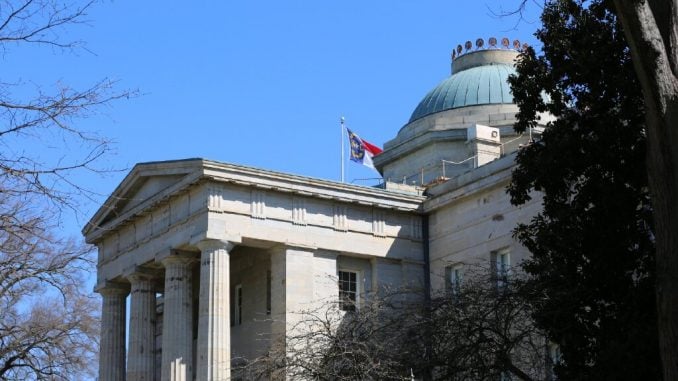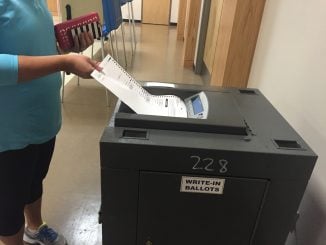
On Nov. 6, North Carolina voters will decide whether to approve six changes to the state Constitution. The first proposal is a single but significant sentence:
Constitutional amendment to require voters to provide photo identification before voting in person.
( ) FOR ( ) AGAINST
This amendment would require voters to present photo ID before casting ballots. Our state had a voter ID law before it was struck down by courts as supposedly targeting black voters, the theory being that blacks are more likely than whites not to have personal photo ID.
Experience in everyday life is that photo ID is necessary to carry on daily tasks. Examples include applying for public assistance, cashing checks, driver licenses, boarding airplanes, and so many other activities with which everyone is personally familiar.
Why not then for the critically-important duty of voting?
34 other states presently have some form of voter ID.
The potential for mischief is present when no voter ID is required. Examples abound and include double-voting, voting in the name of unregistered or even dead persons, and voting in the name of another person.
Those opposing this amendment, such as the NAACP, contend that requiring voter ID adversely impacts black citizens, who they assert are less likely than others to have a photo ID.
Fraudulent voting is real, not an abstraction. Various news reports show that in some places, often large urban areas, more people have voted than the total of registered voters. Chicago is notorious for dead people voting. The story is often told that some Chicagoans vote Republican their whole lives, then Democrat after they die.
Nineteen people in North Carolina recently were charged in federal court for voting illegally because they were not U.S. citizens. Earlier this week, federal immigration officials subpoenaed from numerous boards of elections in the North Carolina Eastern District Federal Court the voting records of hundreds of thousands of people who have voted in North Carolina in various elections. Indictments and subpoenas are not proof of guilt, but the federal Department of Justice has a gracious plenty of criminal activities to prosecute without chasing unfounded leads.
In the Nov. 8, 2016 election, Gov. Pat McCrory apparently had been re-elected until 70,000 ballots from Durham County mysteriously appeared late in the evening. They were overwhelmingly cast for Democrat Roy Cooper and provided him with his victory margin. Durham County is notoriously Democrat, but it also has a decades-long history of electoral shenanigans.
A personal example illustrates how commonplace photo IDs are to confirm one’s identity. A busload of us attended the Donald Trump Inauguration in Washington on Jan. 20, 2017. We were lacking around 10 tickets that provided for seated attendance at the swearing-in ceremony.
We asked a North Carolina Democrat member of the U.S. House for tickets hoping they would not be using their full allotment of tickets. The confirmation that we would receive the tickets was accompanied in writing with instructions that when we picked up the tickets, we were required to present photo IDs. While we were grateful for the cooperation of that Democrat in complying with our request, the irony of a liberal Democrat requiring photo ID apparently was not grasped.
When the Democratic National Convention was held in Charlotte in 2012, I was assigned as a paid reporter to cover the festivities. I saw convention delegates showing two forms of ID in order to enter the arena where the convention was held in order to vote on various platform proposals, including one opposing voter ID. Again, the irony escaped those in attendance.
Various polls have showed consistently that 70%+ of North Carolinians support voter ID. Sixty-five percent of black North Carolinians support voter ID.
The votes of registered citizens who do show up to cast ballots on Nov. 6 will decide whether proposed Amendment One to the North Carolina Constitution will become law in our State.
Philip M. Van Hoy is a Charlotte native and principal at Van Hoy, Reutlinger, Adams and Dunn, a law firm he started in 1989.


